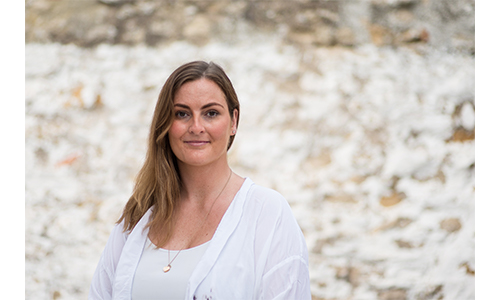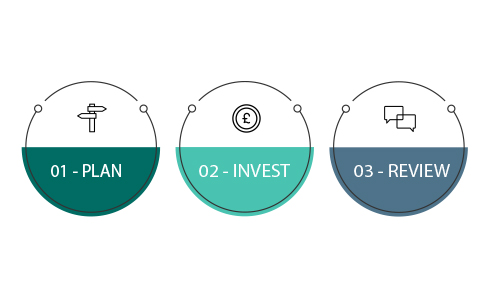There has been growing interest in self-directed investing during the pandemic, particularly within younger generations. But the rigour, expertise and due care and attention fund managers bring to their discipline should not be underestimated.
Fund managers who invest in stocks and shares have myriad factors to take into account. It isn’t as simple as seeing a company they believe to be well-run and likely to grow and then buying its shares.
Depending on the type of portfolio or fund they run, there are parameters on what the fund manager can invest in. For example, funds classified by the Investment Association (IA) as UK All Cap funds must hold at least 80% of their assets in shares issued by UK-based companies, with a primary objective of achieving capital growth. Since they are ‘all cap’ they can invest in listed companies across the market cap spectrum – so of any size. There are similar parameters across the investment universe for all fund managers.
Investing is not rocket science, or is it?
It’s easy to assume that equity income managers would simply invest in all the highest-yielding companies in the FTSE All-Share to achieve such an objective, ignoring those with lower historic dividend payments. But some of the highest dividend-paying companies in the past have had to halt or cut dividends when the economic environment has affected their profitability or growth prospects.
A classic example would be the banking sector in the aftermath of the global financial crisis. Banks were forced to suspend dividend payments in order to survive the recession which followed the collapse of systemically important financial institutions in the US and Europe, and the provision of government bailouts for many others.
Last year, in the midst of the Coronavirus pandemic, the Bank of England’s Prudential Regulation Authority requested the largest UK banks cancel any outstanding dividend payments from 2019 to safeguard their balance sheets. More recently, the banks were allowed to start distributing dividends again but with restrictions on the ratios of payments compared with the amount of capital held by the bank in question.
Banks are not the only sector to be affected by external uncontrollable events like this. Energy and utilities companies often fall foul of rising or falling commodities prices. BP for example was forced to cut its dividends in 2010 in the aftermath of its Deepwater Horizon oil spill in the Gulf of Mexico. Fellow oil giant Shell meanwhile, cut its dividend for the first time since World War II in 2020 in response to plummeting oil prices due to reduced economic activity at the height of the pandemic.
The full spectrum of due diligence
While dividend analysis is one obvious element for equity income fund managers to spend time on, equity managers who invest according to a certain style will also look at different metrics. The two main styles can be categorised as Growth and Value.
There are various sub-strategies of these two approaches, but generally speaking, value managers look for companies they believe to be undervalued by the rest of the market – these can often be in out of favour sectors – while growth managers are looking for stocks that they believe can continue to succeed and justify further share price increases.
Depending on which style a fund manager favours they will analyse stocks in different ways. Some like to look at the share price relative to other companies in the sector; the cash flow dynamics is another element many pay attention to. Others look at how earnings have grown over time and whether the company has shown itself to be able to compound its success over time. Reinvestment of capital and control of running costs can also be analysed.
Why soft skills matter
Outside these ‘hard’ metrics, many fund managers also pay attention to softer elements of the way a business is run: What is the management like? What can they learn through company culture? How does the business interact with its customers? Are customers loyal to the brand?
Given fund managers’ responsibility for managing significant sums, often supported by research teams, they have greater access to the management of companies to get under the ‘skin’ of the business, something that individuals cannot do.
With the rise of interest in the sustainability of companies, Environmental, Social and Governance factors are also considered by many fund managers.
All of this information is collected via in-person meetings, through investor relations calls with the business, poring over research and conducting due diligence into the accounts of companies.
At Church House Investment Management, our fund managers select individual investments based on their quality, suitability and value within a disciplined risk framework.
This risk management is a core pillar of our investment philosophy. Through a disciplined approach, our fund managers have first-hand experience in managing investments across multiple market cycles. We have an in-depth knowledge of companies through years of following them and at every opportunity like to get under the bonnet of these businesses by visiting them in-situ and having meetings with management teams. Last year we had over 200 different company meetings and we believe this access is imperative to successfully and diligently running portfolios.
Important information
The contents of this article are for information purposes only and do not constitute advice or a personal recommendation. Investors are advised to seek professional advice before entering into any investment decisions. Please also note the value of investments and the income you get from them may fall as well as rise and there is no certainty that you will get back the amount of your original investment. You should also be aware that past performance may not be a reliable guide to future performance.
How would you like to share this?


